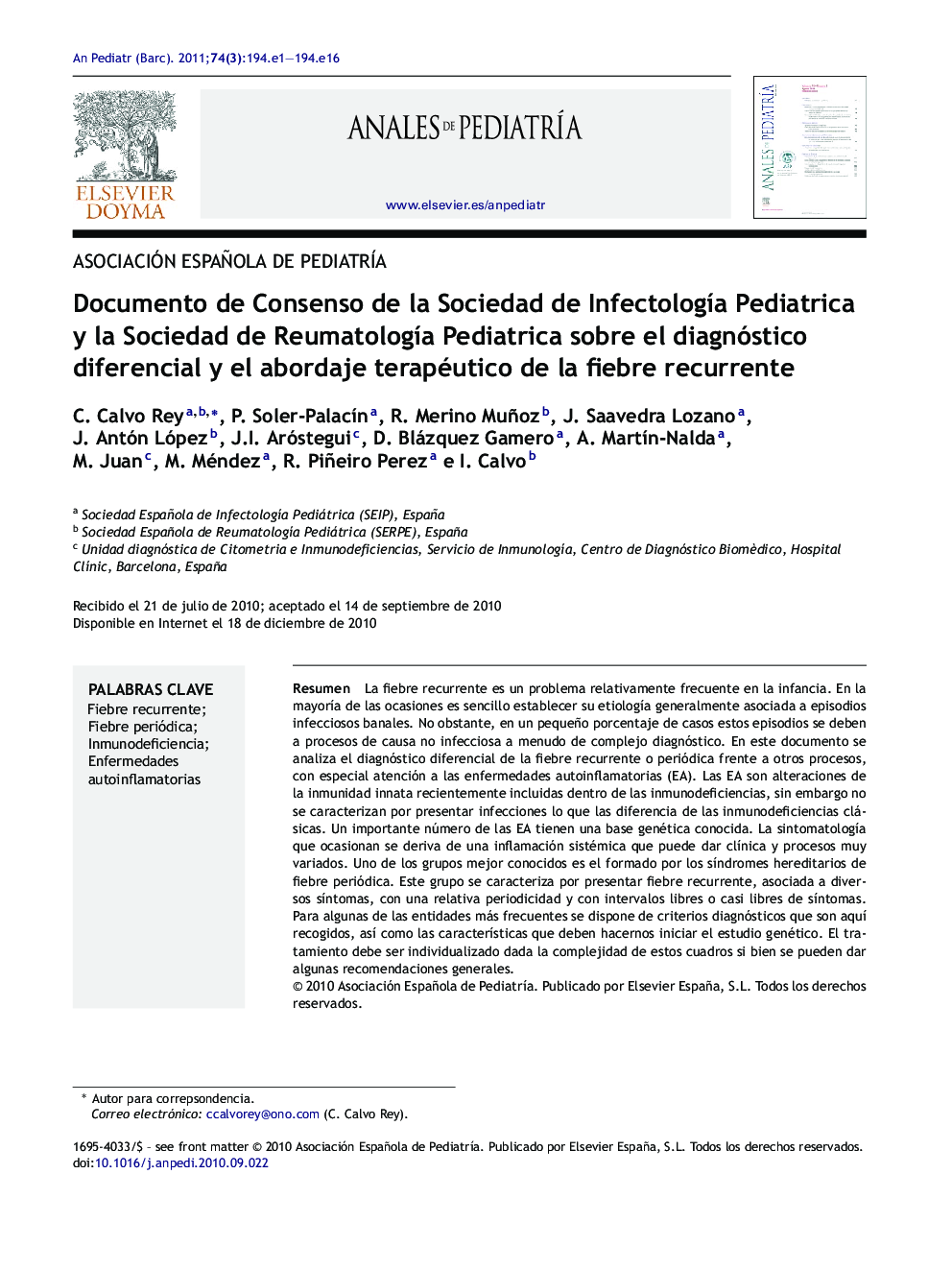| Article ID | Journal | Published Year | Pages | File Type |
|---|---|---|---|---|
| 4142391 | Anales de Pediatría | 2011 | 16 Pages |
Abstract
Recurrent fever is a relatively common problem during childhood. Diagnosis is often easy and related to mild viral infections. However a small proportion of these cases originate from an underlying non-infectious process that is generally difficult to diagnose. In this paper we describe the differential diagnosis of recurrent or periodic fever versus other processes, with especial attention to autoinflammatory disorders (AD). AD are alterations of innate immunity, and they have been recently classified as an immunodeficiency. Anyhow, since infections are not present, these processes are different to the classic primary immunodeficiency. An important part of AD is of known genetic aetiology. The symptoms originate from an underlying inflammatory process and can have different clinical expressions. One of the most relevant groups is the hereditary syndromes of periodic fever. This group of diseases associates recurrent fever and several clinical symptoms with a relative periodicity, separated by intervals free or almost free of symptoms. We include the diagnostic criteria for some processes as well as the characteristics that should, eventually, lead to a genetic study. Although treatment should be individualised, we also include some general recommendations.
Keywords
Related Topics
Health Sciences
Medicine and Dentistry
Perinatology, Pediatrics and Child Health
Authors
C. Calvo Rey, P. Soler-PalacÃn, R. Merino Muñoz, J. Saavedra Lozano, J. Antón López, J.I. Aróstegui, D. Blázquez Gamero, A. MartÃn-Nalda, M. Juan, M. Méndez, R. Piñeiro Perez, I. Calvo,
